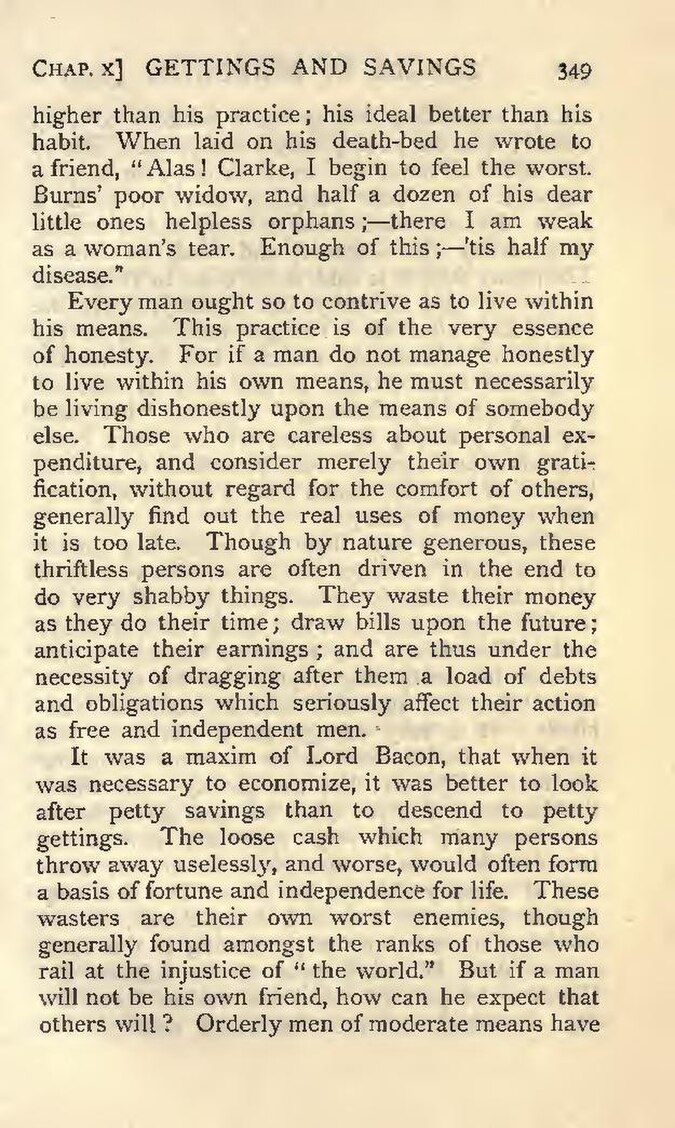higher than his practice; his ideal better than his habit. When laid on his death-bed he wrote to a friend, "Alas! Clarke, I begin to feel the worst Burns' poor widow, and half a dozen of his dear little ones helpless orphans;—there I am weak as a woman's tear. Enough of this;—'tis half my disease."
Every man ought so to contrive as to live within his means. This practice is of the very essence of honesty. For if a man do not manage honestly to live within his own means, he must necessarily be living dishonestly upon the means of somebody else. Those who are careless about personal expenditure, and consider merely their own gratification, without regard for the comfort of others, generally find out the real uses of money when it is too late. Though by nature generous, these thriftless persons are often driven in the end to do very shabby things. They waste their money as they do their time; draw bills upon the future; anticipate their earnings; and are thus under the necessity of dragging after them a load of debts and obligations which seriously affect their action as free and independent men.
It was a maxim of Lord Bacon, that when it was necessary to economize, it was better to look after petty savings than to descend to petty gettings. The loose cash which many persons throw away uselessly, and worse, would often form a basis of fortune and independence for life. These wasters are their own worst enemies, though generally found amongst the ranks of those who rail at the injustice of "the world." But if a man will not be his own friend, how can he expect that others will? Orderly men of moderate means have
